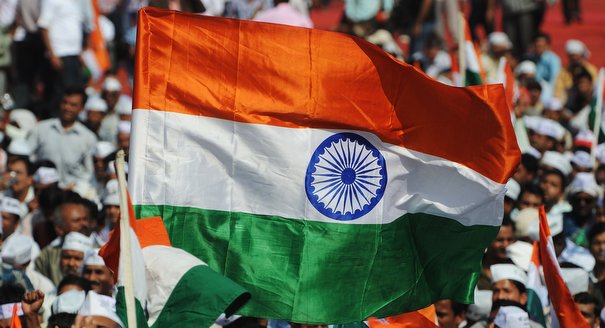Registration
You will receive an email confirming your registration.
The forthcoming Indian general election, scheduled to begin in mid-April, will be arguably the country’s most critical vote since 1977. An electorate of nearly 815 million heads to the polls in the midst of a stagnant economy, a rapidly changing regional security environment, increasing urbanization and a burgeoning youth population. The precise character and makeup of India’s next governing coalition will play a critical role in determining India’s future trajectory on all of these fronts.
The Carnegie South Asia Program hosted a discussion of the key themes surrounding India’s 2014 election and its aftermath. Results from a unique recent survey of voter attitudes were also presented at the event.
Introduction and Presentation of Survey Results
A unique recent survey of voter attitudes in India reveal some interesting trends that could have a significant impact on upcoming elections.
Devesh Kapur of the University of Pennsylvania, Rajiv Lall of the Lok Foundation, and Carnegie’s Milan Vaishnav discussed 5 common myths of Indian elections trends, presented findings from a recent survey of voter attitudes, and evaluated whether the findings helped to confirm or deny each myth.
Milan Vaishnav
Milan Vaishnav is an associate in the South Asia Program at the Carnegie Endowment for International Peace, where he coordinates Carnegie’s India Decides 2014 initiative. His primary research focus is the political economy of India, examining issues such as corruption and governance, state capacity, distributive politics, and electoral behavior.
George Perkovich
George Perkovich is vice president for studies and director of the Nuclear Policy Program at the Carnegie Endowment for International Peace. His research focuses on nuclear strategy and nonproliferation, with a concentration on South Asia, Iran, and the problem of justice in the international political economy.
Devesh Kapur
Devesh Kapur is director of the Center for Advanced Study of India at the University of Pennsylvania and nonresident fellow at the Center for Global Development. His most recent book is Diaspora, Democracy and Development: The Impact of International Migration from India on India (Princeton University Press).
Rajiv Lall
Rajiv Lall is the founder of Lok Foundation and executive chairman of Infrastructure Development Finance Company Ltd. He has about three decades of experience with leading global investment banks, multilateral agencies, and academia. His areas of expertise include project finance, private equity and venture capital, international capital markets, trade, infrastructure, and macroeconomic policy.
George Perkovich
Japan Chair for a World Without Nuclear Weapons, Vice President for Studies
Implications of 2014 Election
The precise character and makeup of India’s next governing coalition will play a critical role in determining India’s future trajectory on all of these fronts.
Devesh Kapur of the University of Pennsylvania, Arvind Subramanian of the Peterson Institute, and Carnegie’s Ashley Tellis reflected on their interpretations of the survey results and what they illuminated about the changes and continuities the world can expect to see in April’s election.
Ravi Agrawal
Ravi Agrawal will start as CNN International’s New Delhi Bureau Chief on April 1, 2014. Based in the country’s capital, he will manage and oversee CNN’s multi-platform newsgathering operations from India. He has most recently been senior producer of CNN’s flagship Sunday program on world affairs ‘Fareed Zakaria GPS’.
Devesh Kapur
Devesh Kapur is director of the Center for Advanced Study of India at the University of Pennsylvania and nonresident fellow at the Center for Global Development. His most recent book is Diaspora, Democracy and Development: The Impact of International Migration from India on India (Princeton University Press).
Arvind Subramanian
Arvind Subramanian is the Dennis Weatherstone senior fellow at the Peterson Institute for International Economics and senior fellow at the Center for Global Development. His book Eclipse: Living in the Shadow of China’s Economic Dominance was published in September 2011.
Ashley J. Tellis
Ashley J. Tellis is a senior associate at the Carnegie Endowment for International Peace specializing in international security, defense, and Asian strategic issues. His most recent publications include Balancing Without Containment: An American Strategy for Managing China and Crux of Asia: China, India, and the Emerging Global Order (with Sean Mirski).
Devesh Kapur
Starr Foundation Professor, Johns Hopkins (SAIS)
